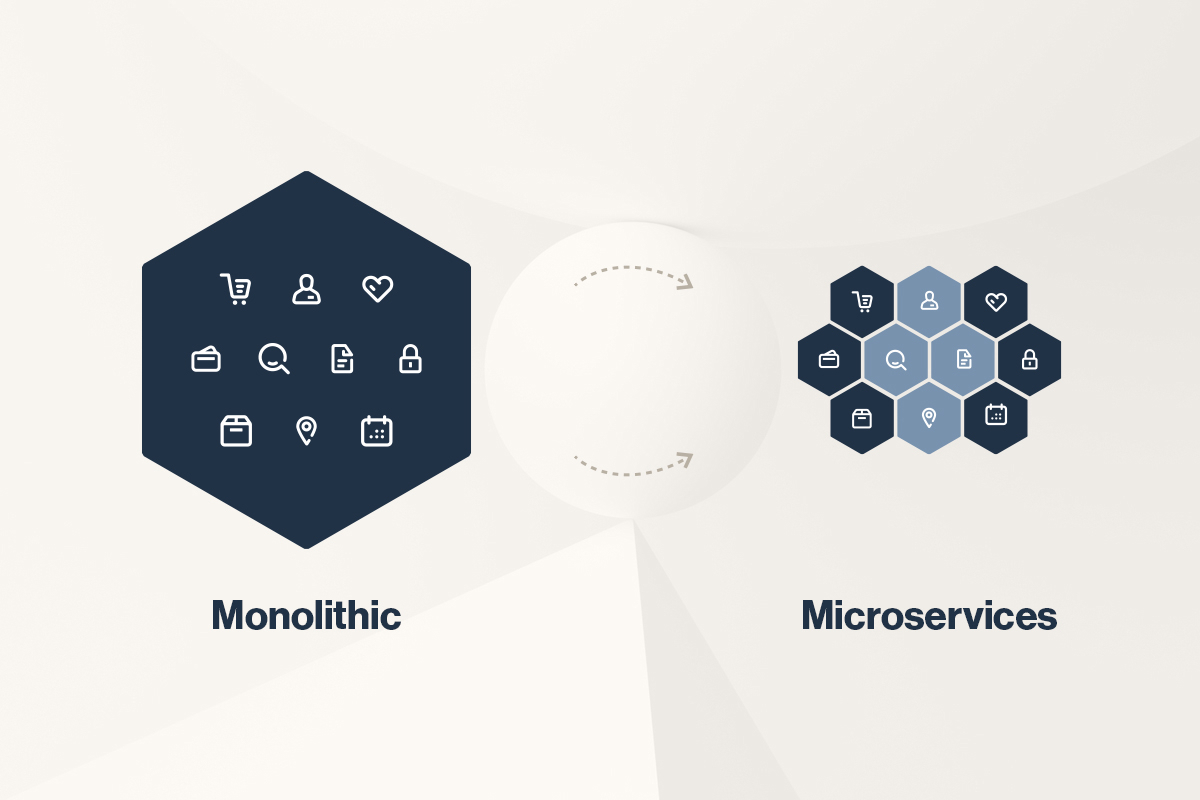
The power of next-gen dashboard and B2B data analytics for improved business performance
Throughout our three-part blog series on the transformation of B2B sales and business operations, we have explored various aspects such as omnichannel capabilities, the customer journey, and the implementation of composable commerce. However, there is one crucial piece that deserves special attention— B2B data analytics.
Regarding ecommerce, Big Data & AI have revolutionized the game, and the true power lies in exploiting the wealth of the data businesses possess. B2B companies that effectively leverage analytics are 1.5 times more likely to achieve growth rates that surpass the industry average compared to their competitors. So now the question is: how can B2B organizations effectively leverage their data to improve their business operations?
Types of B2B data analytics available on an ecommerce platform
Ecommerce platforms offer a wealth of diverse data types that play a crucial role in understanding customer behaviour, optimizing performance, and revolutionizing operations. The type of data that can be collected through an ecommerce platform includes:
- Infrastructure Data: collecting internal data like server logs, network metrics, and error logs helps in identifying and resolving technical issues, ensuring seamless user experiences, and maintaining optimal platform performance.
- Behavioural Data: this involves collecting analytics on customer interactions, such as click-through rates, time spent on pages, and abandoned carts. Analyzing this data reveals customer preferences and identifies trends so that companies can optimize the user experience for higher engagement and conversions.
- First-Party Data: This customer-specific information is collected directly from the ecommerce platform, including profiles, purchase history, and preferences. With 86% of B2B consumers expecting companies to be well-informed of their personal information during any point of interaction, businesses must leverage this data to design personalized marketing and tailor recommendations to foster brand loyalty.
- Zero-Party Data: This data is intentionally shared by customers with companies, including survey and poll responses, empowering businesses to offer personalized experiences and tailored offerings based on users’ preferences.
How does data benefit B2B businesses?
Leveraging data can benefit businesses significantly, especially when combined with next-generation dashboards and an omnichannel approach. According to a study by Gartner, by 2026, 65% of B2B sales organizations will transition from intuition-based to data-driven decision-making. This highlights the increasing recognition of data’s impact on sales and overall business performance.
Enhancing the customer experience
Smart dashboards offer personalized insights by leveraging various customer data points, such as purchase history, order tracking, and support information. With 82% of B2B buyers seeking the same level of personalized experience they encounter in B2C interactions—similar to the seamless and user-friendly journey offered by platforms like Amazon—businesses can leverage their data to gain a deeper understanding of their customer’s preferences and behaviours and tailor their offerings and interactions accordingly. This personalized approach fosters satisfaction, builds customer loyalty, and ultimately leads to an enhanced overall customer experience.
Improving organizational efficiency
Data is vital in improving organizational efficiency by enabling businesses to make informed decisions based on customer trends. With access to valuable insights, companies can optimize merchandising, inventory, and order flows to avoid shortages or overstocking. By leveraging data-driven strategies, businesses can maximize average order value and conversion rates, leading to improved overall performance.
Empowering internal teams
By understanding customer behaviour and preferences through data analysis, businesses can develop targeted marketing campaigns and leverage automation tools to streamline repetitive tasks. This automation increases efficiency and frees up valuable time for team members to focus on high-value activities. With better prioritization of tasks and reduced time spent on manual processes, internal teams can allocate their efforts toward strategic initiatives that drive desired results.
Acquiring new customers
Intensive users of customer analytics are 23 times more likely to outperform competitors in acquiring new customers when compared to non-intensive users. By capitalizing on customer data, businesses can precisely target and attract individuals who closely align with their existing customer base in terms of demographics, interests, and behaviours. This data-driven approach empowers companies to identify potential customers who are highly inclined to engage with the brand and ultimately make a purchase.
Drive success with O2’s B2B commercetools accelerator
O2’s B2B commercetools accelerator is designed to empower businesses by leveraging multiple technologies to maximize the potential of collected data. Integrating a data lake with a standard dashboard enables precise performance measurement and provides valuable insights for improving business operations.
The accelerator automates key processes such as merchandising, product recommendations, search optimization, and email marketing. Teams can train AI models to create greater value and drive success by leveraging the best available data and ensuring its cleanliness.
Moreover, the B2B accelerator allows for sharing of valuable information within teams. This includes identifying low conversion rates for specific customers, lower margins on certain accounts, below-average sales, potential interests that require sales rep follow-ups, abandoned shopping carts, and unsuccessful search queries. Sharing these insights enables teams to take informed actions and optimize strategies accordingly.
Find out more about O2 Commerce’s commercetools B2B accelerator by visiting our dedicated page.



